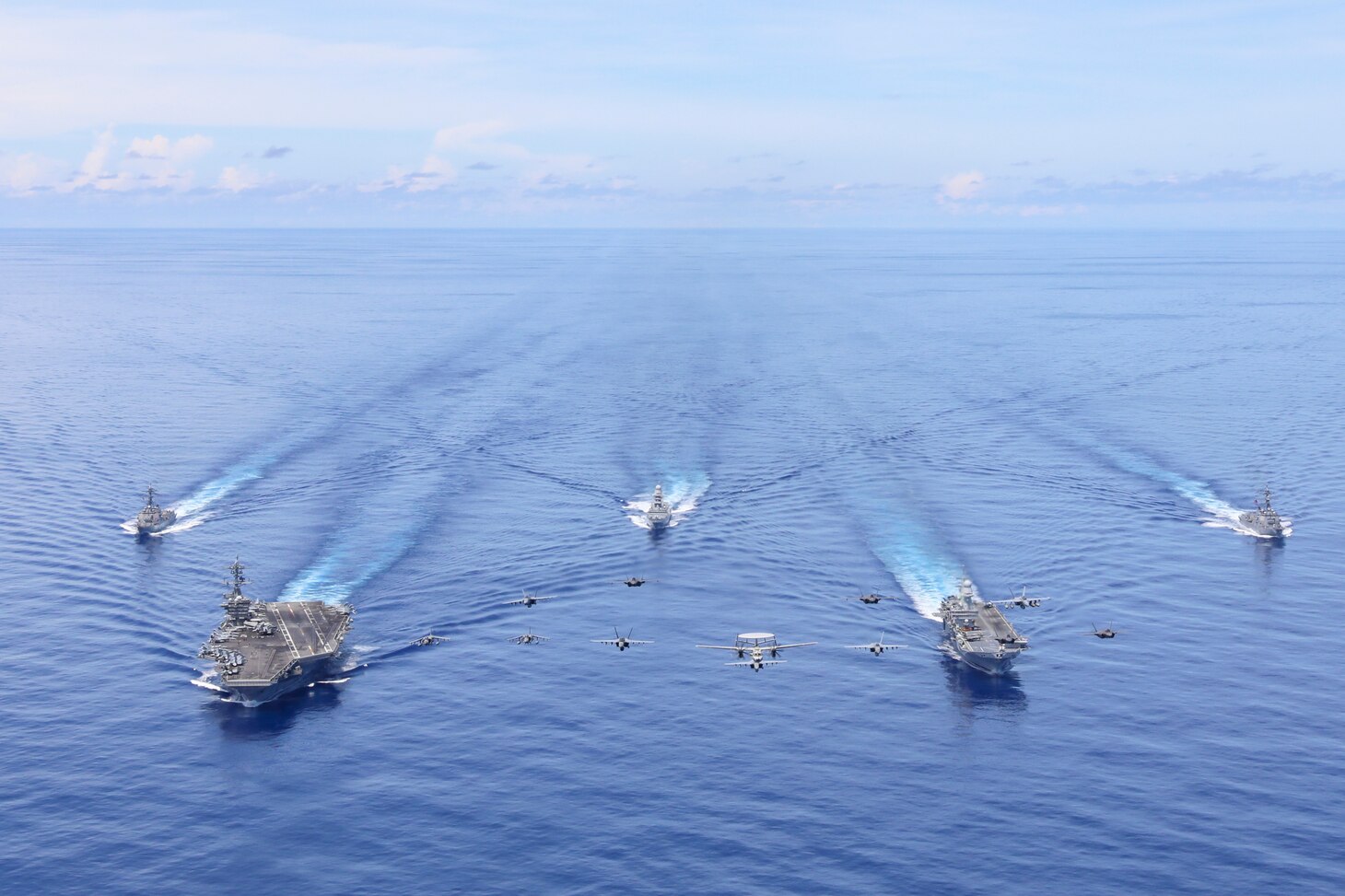No, America Should Not Ditch Strategic Ambiguity For Reckless Hawkishness On Taiwan
For several decades, the United States has had to navigate the tense conflict between the People’s Republic of China and Taiwan. This residual dispute from the Cold War could turn hot should America abandon a tried-and-true strategy in favor of reckless hawkishness.
For over 50 years, the United States has maintained a one-China policy, which asserts there is one China of which Taiwan is part. Successive administrations from both parties maintained a “strategic ambiguity” when asked whether the United States would fight to defend Taiwan. This approach has kept the peace in the Taiwan Strait because China could never be sure if it would have to contend with America’s military might. But casual discussions on Sunday talk shows about our ability to repel the People’s Liberation Army aside, a war in the Taiwan Strait would be catastrophic.
Despite Carl von Clausewitz’s warning that “war is the realm of uncertainty,” we can be sure such a war would, at a minimum, disrupt the global economy, cost billions of dollars, and take an untold amount of lives.
Some of the world’s largest economies would clash on a global battleground. China, Japan, Taiwan, South Korea, and all those doing business with those countries operate within the potential battle zone. More than 80 percent of the world’s largest container ships connect the global economy through the Taiwan Strait. For perspective, imagine the disruption of the Covid lockdowns and multiply it by 10.
Specific sectors of the global economy would be devastated. Taiwan is a major player in the global technology business. Taiwan’s semiconductor sector industry accounts for U.S. $115 billion, and Taiwanese companies account for 60 percent of the world’s semiconductor market. A disruption to Taiwan’s economy would hamper the production of these vital products and services.
And if you think the over $113 billion in aid the United States provided to Ukraine in the last year is high, the price tag for a war over Taiwan would easily surpass that amount. Taiwan is an island nation with limited resources and would need everything from the materials to wage war to food. This cost will primarily fall on American taxpayers, regardless of whether their opinions are considered about the wisdom of intervention. Unlike the artillery-dominated war in Ukraine, a war in the Taiwan Strait would be conducted by waves of aircraft, fleets of ships at sea, and high-tech missiles.
With that kind of warfare comes a hideous cost of life. Taiwan is home to nearly 24 million people. Every bomb, bullet, or missile that hits Taiwan will do damage and cause casualties. To put it in perspective with current events, Taiwan is less than one-tenth the size of Ukraine with half as many people. There is nowhere to run on the island. The casualties both in and out of uniform would be horrendous.
Fortunately, the one-China policy has avoided this kind of war. But hawks in Congress and the administration are pushing for a more aggressive stance against China, at times even expressing support for a break from the one-China policy and at least tacitly pushing for Taiwanese independence. While one can understand the desire to support the self-determination of the Taiwanese people, the bellicose tone taken by some risks talking the United States into a war with a China that has a growing military and alliances with other American adversaries.
Some would suggest that unambiguously aggressive support for Taiwan against the PRC is the best way to support self-determination and avoid war. But we must remember that taking a jingoistic adversarial position could elicit a stronger reaction than anticipated. Pushing for Taiwan’s independence is creating a self-fulfilling prophecy that is more likely to cause the very war we are trying to prevent. In any naval war with China, we stand the chance of losing more Americans in a day than we did in the 20 years of our wars in the Middle East. The loss of one aircraft carrier alone could mean 5,000 casualties. China isn’t Iraq, and it isn’t Russia.
While we seek those solutions, let’s not continue to toss matches at a pool of gasoline. Certainly, we can take the steps that are prudent to ensure our military can handle any scenario, but these must be done without fanfare.
The way to preserve peace is to reaffirm the one-China policy. Aggressive U.S. policies designed for domestic audiences without regard for international ones could inadvertently signal to China that it has no choice but to prepare for war and strike when conditions are most advantageous.
Keeping China guessing about America’s response has kept the peace. America and the world cannot afford to abandon the one-China policy.
" Conservative News Daily does not always share or support the views and opinions expressed here; they are just those of the writer."





Now loading...